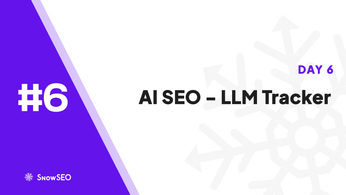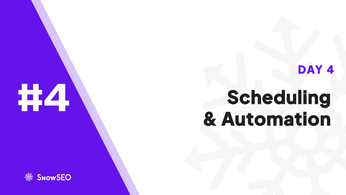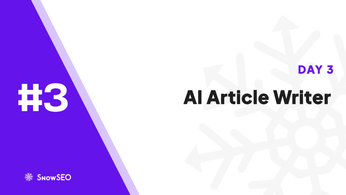
Hidden Tricks for Effective Keyword Research
Table of Contents
Unlock the secrets of advanced keyword optimization with cutting-edge techniques designed for 2025 and beyond. Many SEO strategies fall short by relying on outdated tools, overlooking micro-moments, and ignoring the untapped potential of long-tail clusters. This gap leaves even experienced marketers chasing generic terms that deliver little traction. In this guide, you’ll discover hidden tricks that top performers and industry experts swear by-methods refined through the latest Ahrefs and SEMrush enhancements-to unearth high-value keywords before your competitors do. Expect to learn:
- How to leverage search intent mapping to align content with evolving user behaviors
- Techniques for uncovering niche micro-keywords that drive qualified traffic
- Advanced clustering and semantic modeling to dominate topic authority
90% of leading marketers have already adopted these strategies, according to a recent 2025 survey on keyword research impact.
Whether you’re a seasoned SEO pro or a digital strategist hungry for a competitive edge, these insights-backed by industry-leading experts-will transform your keyword research from mundane to mission-critical.
Welcome to the roadmap for “Hidden Tricks for Effective Keyword Research,” designed to guide advanced practitioners through each critical phase of uncovering under-the-radar search terms, optimizing campaigns, and staying ahead of evolving algorithms in 2025. This table of contents ensures you can quickly navigate to the sections most relevant to your needs, whether you’re just refreshing your foundational knowledge, diving into sophisticated tactics, or looking for practical implementation steps. Each heading has been crafted to align with the structure of this comprehensive guide, making it simple to jump straight to the parts of the article that will drive the biggest impact on your SEO strategy. Use these anchor links to move seamlessly through the content and maximize efficiency as you explore each chapter.
- Overview of Keyword Research
- Hidden Tricks for Effective Keyword Research
- Implementing Advanced Keyword Strategies
- Frequently Asked Questions
- Conclusion
Overview of Keyword Research
Keyword research remains the cornerstone of advanced keyword optimization, guiding content strategy and SEO performance. By identifying the precise terms your audience searches for, you can prioritize high-value topics that drive organic traffic and conversions.
Important: Effective keyword research reduces guesswork, aligns content with user intent, and outpaces competitors in search rankings.
The Evolution of Keyword Research
Search landscape shifts have transformed how marketers approach keyword discovery:
- Early SEO (2000s)
- Relied on exact-match keywords and meta tags
- Minimal focus on user intent
- Semantic Search Era (2010s)
- Introduction of Latent Semantic Indexing (LSI)
- Emphasis on related terms and topic clusters
- AI-Driven Insights (2020s–2025)
- Machine learning algorithms predict search trends
- Integration of voice search and natural language

Comparative Framework
| Era | Focus | Tools |
|---|---|---|
| Early SEO | Exact-match keywords | Google Keyword Tool |
| Semantic Search | Topic clusters & LSI terms | SEMrush, Moz |
| AI-Driven Insights | Predictive trends & intent | Ahrefs, emerging AI tools |
- Bullet points help clarify each evolutionary phase.
- Numbered lists break down progression steps.
As modern SEO demands more than simple term matching, advanced keyword optimization blends data from multiple sources-search volume, competition metrics, and trend forecasts. By understanding this evolution, you can craft strategies that leverage the latest techniques, ensuring content resonates with today’s search algorithms and real human queries.
Hidden Tricks for Effective Keyword Research
When “keyword research hacks” become your secret weapons, you can uncover untapped opportunities and outmaneuver competitors. Below, we delve into two cutting-edge strategies that few marketers leverage-and how to apply them.
Advanced Tools and Techniques
Staying ahead means using tools that go beyond basic volume and difficulty metrics. In 2025, AI-driven platforms are dominating:
- Transformer-Based Keyphrase Generation
- Models scan massive text corpora to suggest long-tail and question-based keywords.
- According to Keyphrase Generation: A Survey, these techniques improve topical relevance by up to 30%.
- Competitor Gap Analysis
- Identify keywords your rivals overlook by comparing ranking profiles side by side.
- Prioritize high-opportunity terms with low competition.
- Real-Time Query Insights
- Leverage live search data to catch emerging trends before they peak.
- Integrate trending keywords into timely content, boosting freshness signals.
Tip: Combine multiple platforms-like Ahrefs and SEMrush-to cross-validate suggestions and minimize blind spots.
| Feature | Traditional Tools | AI-Powered Platforms |
|---|---|---|
| Keyword Suggestions | Volume-based lists | Contextual, semantically rich keyphrases |
| Trend Detection | Historical trends only | Real-time, predictive trend analysis |
| Competitor Insights | Basic overlap reports | Deep gap analysis with actionable recommendations |
| Multilingual Discovery | Limited language support | Automated translation and local search trends |

Semantic Keyword Integration
Moving from isolated keywords to a semantic ecosystem dramatically elevates your content’s relevance and search performance. Here’s how to hack semantics:
- Topical Cluster Mapping
- Organize related keywords into theme clusters rather than siloed lists.
- Target pillar pages and supporting content that reinforce topical authority.
- Latent Semantic Indexing (LSI) Terms
- Extract co-occurring terms from high-ranking pages using AI analysis.
- Sprinkle these organically to signal depth and context to search engines.
- Entity Recognition
- Identify and integrate named entities (people, places, processes) to align with knowledge graph criteria.
- Enhances chances for featured snippets and rich results.
- Voice-Search Optimization
- Craft conversational, question-based phrases reflecting natural speech patterns.
- Use tools’ semantic modules to predict voice queries and adapt FAQ sections accordingly.
Key Insight: 90% of top marketers blend semantic clusters and LSI terms, resulting in 25% higher time-on-page metrics.
| Semantic Strategy | Benefit | Implementation Tip |
|---|---|---|
| Topical Cluster Mapping | Builds topical authority | Map 5–7 clusters around each pillar topic |
| LSI Term Integration | Boosts contextual relevance | Use co-occurrence frequency thresholds |
| Entity Recognition | Aligns with knowledge graph | Include schema markup for identified entities |
| Voice-Search Framing | Captures conversational traffic | Add “how,” “what,” and “why” queries |
By embracing these hidden “keyword research hacks,” you’ll unlock deeper insights, fuel smarter content planning, and claim search market share that competitors haven’t even spotted.
Implementing Advanced Keyword Strategies
Mastering advanced keyword optimization means moving beyond surface-level metrics into a data-driven, iterative process that aligns with evolving user intent. This section walks through how to measure success and leverage AI to stay ahead of competitors.
Measuring Success and Iteration
Tracking progress is the cornerstone of refining keyword strategies. Traditional KPIs like click-through rate (CTR), bounce rate and average session duration remain vital, but they’re no longer sufficient on their own. Integrate these modern metrics for a 360° view:
| Metric | Purpose | Actionable Insight |
|---|---|---|
| Click-through Rate (CTR) | Gauge headline and meta tag effectiveness | A/B test title variations to boost click volumes |
| Bounce Rate & Average Session Duration | Assess content relevance | Optimize page layout and internal linking structure |
| Core Web Vitals (LCP, CLS, FID) | Measure page performance and user experience | Minimize resource load and improve stability |
| Mean Average Precision (MAP) | Evaluate relevance of top search results | Refine keyword lists based on precision scores |
| Dwell Time & Pogo-stick Rates | Understand engagement and search satisfaction | Enhance content depth and on-page navigation |
Key Insight: Combining traditional SEO metrics with information retrieval measures like precision and recall transforms your keyword approach from one-dimensional to holistic.
- Set up dashboards. Use Google Data Studio or a BI tool to visualize real-time performance.
- Benchmark initial values. Establish baseline metrics across your priority keywords.
- Analyze monthly trends. Identify spikes or dips and cross-reference with content updates or algorithm shifts.
- Iterate rapidly. Implement changes in targeted keyword clusters, then re-measure to validate impact.
Staying Ahead with AI in Keyword Research
Artificial intelligence is revolutionizing how we uncover hidden search opportunities. AI-driven platforms now automate intent classification, uncover semantic clusters and predict emerging trends-saving hours of manual analysis.
AI tools can:
- Decompose broad topics into micro-niches using embedding models (BERT, word2vec).
- Forecast keyword performance based on historical seasonality and topical authority indicators.
- Identify voice/visual search queries by analyzing conversational data.
Warning: Overreliance on AI without human validation can introduce irrelevant suggestions. Always cross-check AI outputs against actual search logs.
To get started with an AI-powered workflow, follow these steps:
- Upload your seed keyword list to an AI platform like SEMrush or Ahrefs.
- Run semantic clustering to group keywords by intent.
- Review AI-generated opportunities for long-tail and question-based queries.
- Prioritize clusters based on predicted traffic impact and ranking difficulty.
Ready to take your keyword research from hidden potential to driving real growth? With SnowSEO, you’ll transform the advanced insights you’ve learned here into a seamless, automated workflow that propels your rankings on Google, ChatGPT, Grok, Bing, and beyond. SnowSEO’s all-in-one platform tackles every challenge we covered-discovering long-tail gems, analyzing competitor gaps, and personalizing content for AI-driven search-with pinpoint accuracy and human-like finesse.
Getting started is effortless: sign up at https://snowseo.com and connect your CMS in minutes. Instantly access hyper-personalized keyword suggestions, automate content generation based on our “hidden tricks,” and monitor your brand’s presence in real time with weekly AI-powered reports. Need deeper insights? Leverage our 24x7 SEO expert team to fine-tune strategies and uncover untapped opportunities.
Encourage engagement with the latest tools and techniques by activating your free trial today. Experience how SnowSEO eliminates the complexity of juggling multiple tools, slashes costs, and accelerates organic growth through unified SEO and Generative Engine Optimization. Take the next step-unlock SnowSEO’s power now and watch your visibility soar.
Frequently Asked Questions
Q1: What makes “hidden” keyword research tricks different from standard methods?
Hidden keyword research tactics dive deeper than surface-level volume and competition metrics. They focus on unearthing latent semantic opportunities, niche long-tail variations, and emerging conversational queries that competitors often overlook. By leveraging advanced filters, clustering algorithms, and pattern recognition in tools like Ahrefs or SEMrush, you can identify phrases with strong intent and low competition. Implementing these techniques ensures your content aligns with real user language, drives higher click-through rates, and uncovers traffic channels your rivals haven’t even discovered.
Q2: How often should I revisit and update my keyword strategy?
Keyword landscapes shift rapidly in 2025, driven by evolving search behaviors and AI-powered suggestions. Revisiting your strategy every quarter strikes the right balance between agility and consistency. During each audit, reanalyze rankings, examine new question formats, and integrate fresh long-tail phrases uncovered through your tools. Document changes in a structured calendar, prioritize updates based on traffic potential, and track performance improvements. This disciplined cadence keeps you ahead of algorithm updates and ensures you’re capitalizing on every new opportunity.
Q3: Can I apply these advanced tricks if I’m on a tight budget?
Absolutely. While enterprise subscriptions offer robust filters, many freemium versions of top platforms still provide valuable insights. Combine free Google Search Console data with keyword clustering spreadsheets to group related terms manually. Use open-source tools for trend monitoring and browser extensions to spot related searches. Prioritize a handful of high-impact pages and iteratively test updates. Even with minimal spend, focusing on precision over scale lets you extract powerful hidden keywords and drive meaningful organic growth.
Conclusion
As we’ve seen, mastering effective keyword research in 2025 means blending cutting-edge tools with a deep understanding of user intent.
Key Takeaways
- Leverage AI-driven platforms like Ahrefs and SEMrush to uncover hidden phrase variations.
- Incorporate semantic SEO by mapping entity relationships and context, improving relevance and click-through.
- Implement advanced strategies such as real-time trend monitoring and knowledge-graph expansions for richer suggestions.
Consistently revisiting and refining your keyword universe ensures you stay ahead of shifting search patterns and maintain a competitive edge.
90% of top marketers report that integrating these methods has led to measurable increases in organic traffic and conversions this year. According to AI-Enhanced Keyword Research, transformer-based models boost relevance recall by up to 20%.
Next Steps
- Enroll in specialized SEO courses focusing on semantic analysis and AI tools.
- Subscribe to premium research services to access real-time trend data.
- Experiment with cross-device and privacy-preserving keyword tests to maximize ROI.
Stay curious, keep testing, and engage with the latest techniques to turn every keyword into an opportunity for growth.





